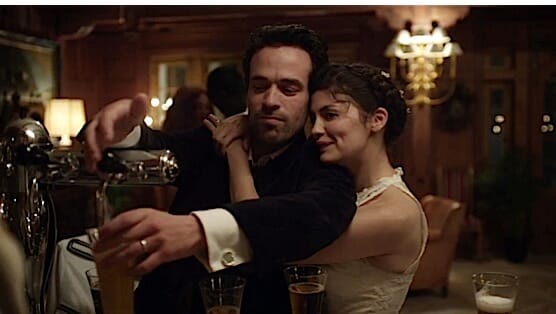Mood Indigo

“Imaginative” to a fault, “whimsical” until you say uncle, Mood Indigo pushes director Michel Gondry’s style of surreal playfulness to its breaking point. The filmmaker behind Eternal Sunshine of the Spotless Mind and The Science of Sleep has never been shy about investing his work with a handmade preciousness that, when done right, imbues his romantic fables with an aching beauty, depicting love as a sensation that’s as potent and ephemeral as a dream. But Gondry’s latest, despite its share of arresting images and moments, demonstrates the downside to his approach: If there’s nothing girding the fantasia, the whole enterprise threatens to collapse under the weight of its cutesiness.
Based on Boris Vian’s novel 1940s novel Froth on the Daydream, Mood Indigo is Gondry’s most melancholy love story yet. Colin (Romain Duris) lives in a very Gondrian world: People greet each other by joining their hands and rotating them in a twirling motion similar to a mixer; Colin has an uber-adorable mouse (actually a human, played by Sacha Bourdo, dressed in a mouse costume) living in the walls of his apartment. The man goes to a party and meets Chloé (Audrey Tautou), who seems equally awash in childlike wonder. A love affair blooms, but the storybook romance seems destined not to have a happy ending: A mysterious illness in the form of a papier-mâché flower nesting in her heart threatens her life.
Gondry’s films can feel like aggressive enchantments catering to the perpetual adolescent in all of us, but at his best he spikes his frothy daydreams with real pain or ideas so goofy you can’t stop giggling. (For example, his 2008 comedy Be Kind Rewind starred Jack Black and Mos Def as buddies who have to re-create classic movies after all the tapes in Def’s video store are erased. Never mind the wonderfully dopey premise for a minute: Consider that Be Kind Rewind takes place in some bizarro present where stores that rent VHS tapes still exist.)
-

-

-

-

-

-

-

-

-

-

-

-

-

-

-

-

-

-

-

-

-

-

-

-

-

-

-

-

-

-

-

-

-

-

-

-

-

-

-

-








































